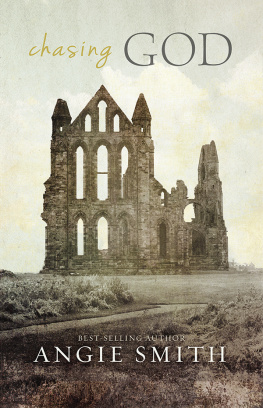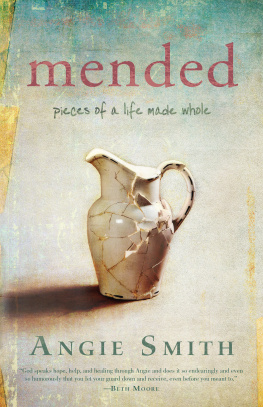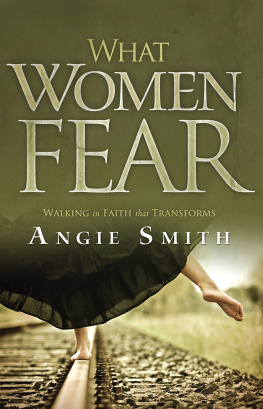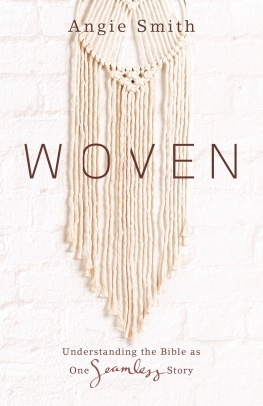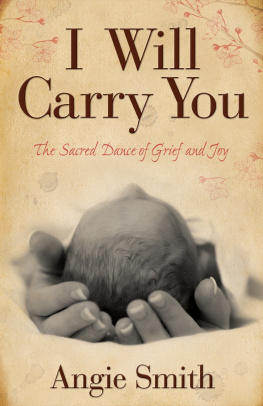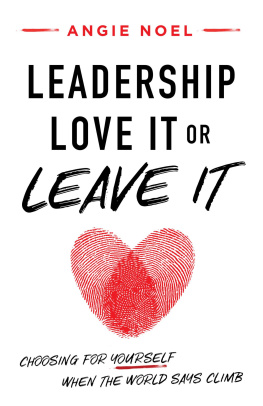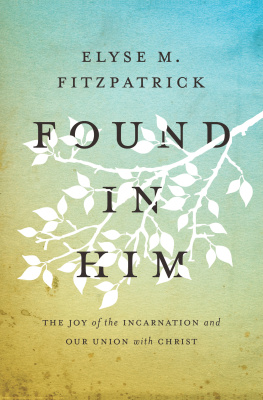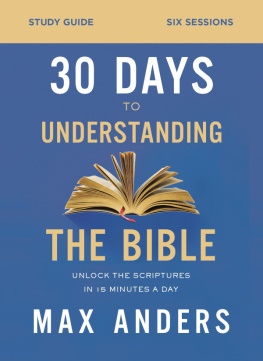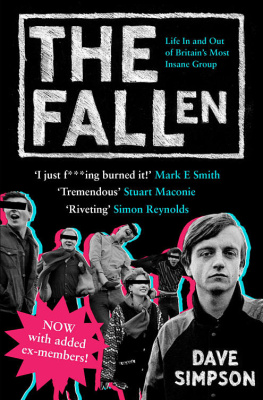
Chasing God, Digital Edition
Based on Print Edition
Copyright 2014 by Angie Smith
All rights reserved.
Printed in the United States of America
978-1-4336-7661-1
Published by B&H Publishing Group
Nashville, Tennessee
Dewey Decimal Classification: 248.843
Subject Heading: WOMEN \ CHRISTIAN LIFE \ GOD
Unless otherwise designated, Scripture quotations are from the English Standard Version, copyright 2001 by Crossway Bibles, a publishing ministry of Good News Publishers.
Also used: the Holman Christian Standard Bible ( hcsb ). Copyright 1999, 2000, 2002, 2003, 2009 by Holman Bible Publishers. Used by permission.
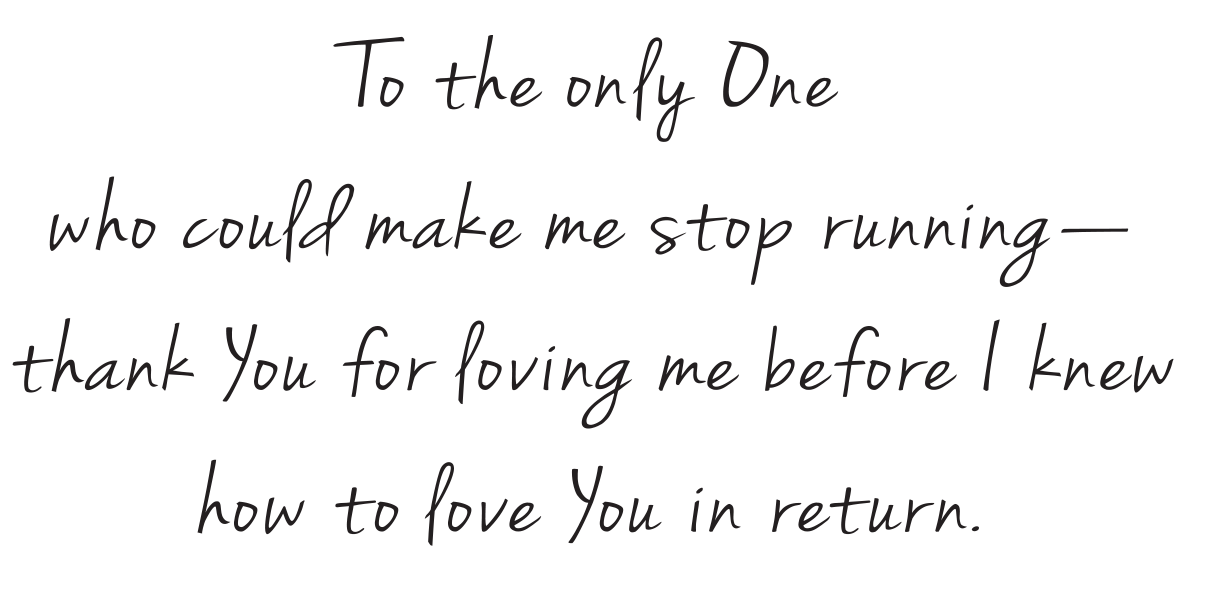
An impersonal Godwell and good. A subjective God of beauty, truth and goodness, inside our own headsbetter still. A formless life-force surging through us, a vast power which we can tapbest of all. But God Himself, alive, pulling at the other end of the cord, perhaps approaching at an infinite speed, the hunter, king, husbandthat is quite another matter. There comes a moment when the children who have been playing at burglars hush suddenly: was that a real footstep in the hall? There comes a moment when people who have been dabbling in religion (Mans search for God!) suddenly draw back.
Supposing we really found Him?
We never meant it to come to that!
Worse still, supposing He had found us?
~ C. S. Lewis, Miracles
Introduction
Caedmon
Behold, heaven and the highest heaven cannot contain you; how much less this house that I have built!
~ 1 Kings 8:27

O ne can hardly deny the appeal of a good chase.
Its beautiful in concept: we seek after that which eludes us, longing for something just out of reach. Anticipation builds as our hearts beat faster, wondering if we are about to turn the final corner and catch the object of our affection.
Our minds are wild with possibility and were intoxicated by the sense of adventure. Before we know it, weve forgotten the objective because were caught up in the thrill of wondering.
Either that, or we simply give up and forego the chase altogether because were exhausted and discouraged.
It can only end in one of two ways: either we catch up or we give up .
And despite the outcome, its safe to say that our running was based on the presumption that we want something more than it wants us.
For most of my Christian life, I have been chasing God.
I have piled up commentaries, memorized scholars words, and watched how others walk with Him, all the while keeping journals of the bread crumbs I think Hes leaving for me as I go.
Ive stacked up the required pile with false obligations and bloated assumptions, and Ive scorned the mystery with my desperate need for control.
I know Im not alone.
We try to fill in the gray instead of living in the black and white. We shape theology to suit our taste, our times, our situations, and our desires. Its the mess weve made by desiring to understand Him more than we want to know Him, and were growing more exhausted than inspired every day.
The goal of this book is not to present you with a formula for living out Christianity. Its to offer my thoughts on the difference between looking for Him and looking at Him.
And maybe you, like me, have been spending your time going after the wrong objectives (without realizing it) and its left you weary of the whole process. What was meant to be a gift has become an obligation, a source of guilt, or a way to fight fear.
I assure you, I have been there. And it took quite a bit of time on my knees before I realized I was needlessly exhausted and unsure of my role as a follower of Christ. Dont misunderstand me; we are not called to be passive in our journey with Christ. In fact, being a disciple of Christ necessitates that we press forward until we can hardly believe we can do it anymore. The problem comes when we use our energy in ways He never asked us to because were more concerned with our own feeble sketches of God than we are with God Himself.
We rely on our standards, our rules, our opinions, our agendas, and our measurements of holiness instead of His. And as the books pile one on top of another, so do the questions.
Its the difference between following and chasing.
The key that finally turned the door of my faith was understanding that we are called to one and not the other.
We stare at the rest of the pew, wondering why we arent as far along as they are, secretly resenting those who unswervingly claim their faith while we enter another Bible study group, hoping something will stick.
If I just do this, Ill catch Him.
My misguided understanding of responsibility, control, and ability led me to despair of all the wrong failures and to celebrate successes that God Himself doesnt recognize as such.
Its what happens when you try to use religion to fill in the gaps of your faith.
Religion is what we build with our own hands when we cant stand to feel like observers. And when it crumbles, we blame God. We have determined the man-made ceiling to be our own instead of the heavens themselves, and we have allowed our insatiable hunger for understanding to strangle the mystery were supposed to embrace.
On the cover of this book, youll see an image that has become a visual representation to me of what Ive learned in the past few years. It is what remains of a Benedictine monastery built in AD 657 called Whitby Abbey. It sits on a cliff overlooking the North Sea to one side and the small New Yorkshire town Whitby on the other.
It was made famous for a number of reasons: most notably that it was home to Caedmon, the earliest English poet whose name is known. According to the well-known writer and scholar Saint Bede, Caedmon was an illiterate lay brother who tended to the animals on the property. Caedmon was not well-versed in religion and one night as a harp was being passed around in a time of worship, he left the monastery to sleep outdoors with the animals because he was ashamed that he knew none of the songs nor even how to sing.
It was there in the fields that he had a dream in which someone approached him and asked him to sing the beginning of all created things. At first he refused, but then composed a short poem, seemingly without the human capacity to do so. This hymn is recorded as the oldest English poem in existence, and is spectacular in its simplicity and inspired recognition of God. While Caedmon went on to live a long and devoted life to Christ, penning many other spectacular works, he is most remembered for the words given to him in the middle of the night on a hillside in England:
Now [we] must honour the guardian of heaven,
the might of the architect, and his purpose, the work of the father of glory.
As he, the eternal lord, established the beginning of wonders;
he first created for the children of men
heaven as a roof, the holy creator.
Then the guardian of mankind,
the eternal lord, afterwards appointed the middle earth
the lands for men, the Lord almighty.
He is the Architect, and our lives were given only to thank Him for His creation. When we spend our time gazing at the church ceiling instead of His sky, we fail to do so.
Centuries later, only a fraction of what men created remains, as will always be the case.
Next page
